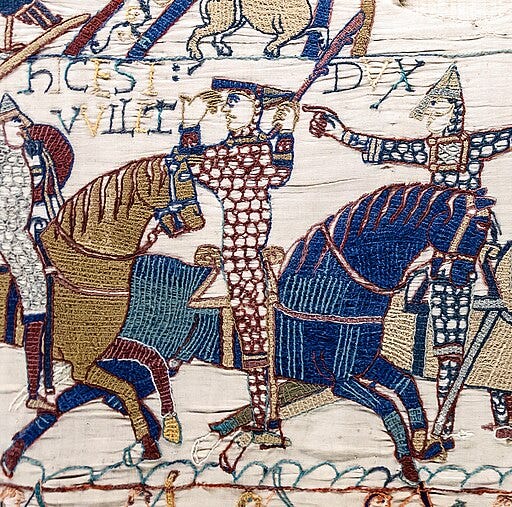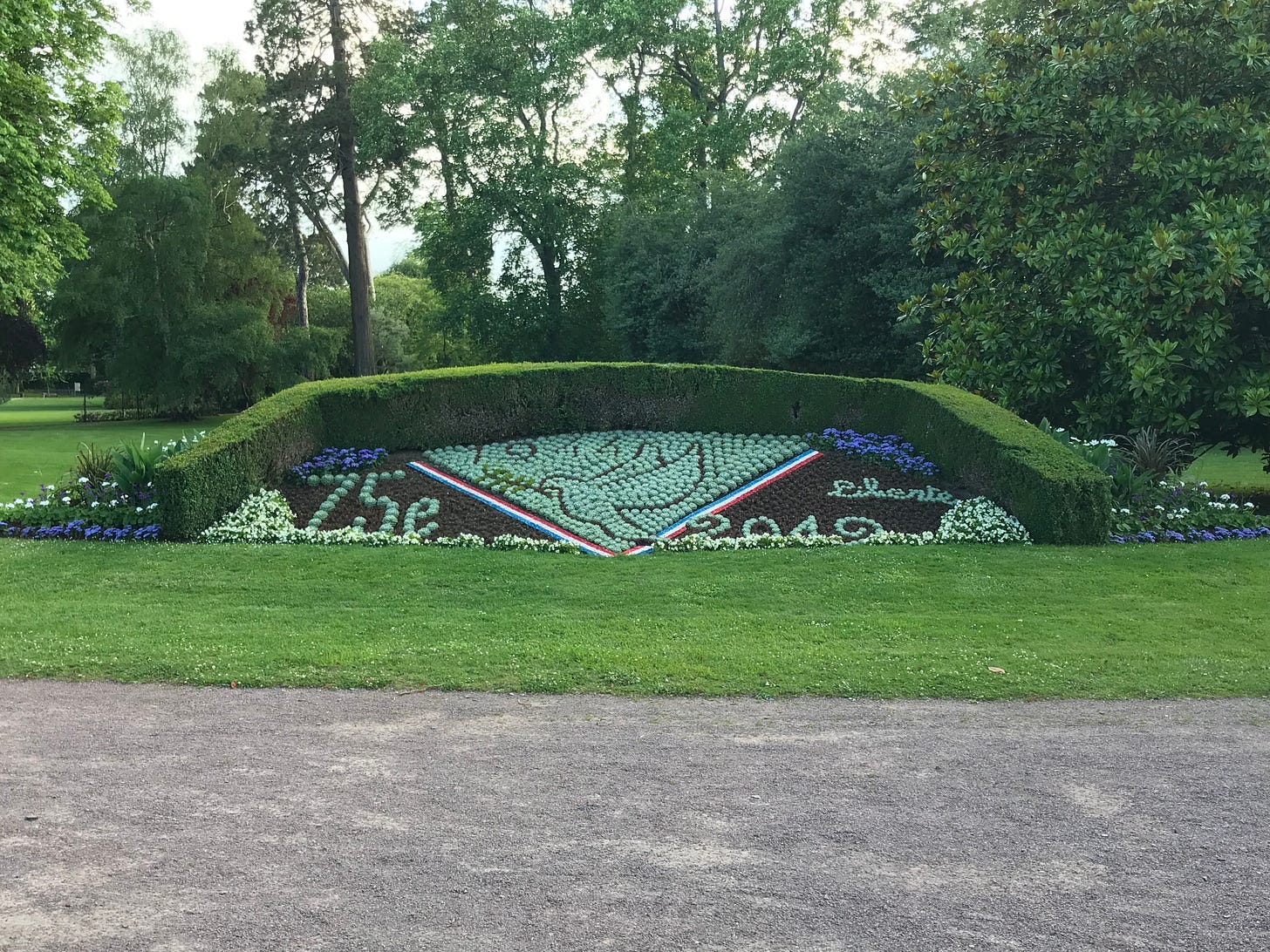People used to make jokes about students putting a textbook under their pillow at night so they could learn through osmosis while they slept. I feel like this is basically how I’ve gained my history knowledge over the past five years. Pretty much every night while I’m falling asleep, I listen to either a Great Courses lecture or a history podcast and absorb at least a few tidbits of knowledge before I drift into dreamland.
Recently, I came across a Great Courses lecture series by Jennifer Paxton with an intriguing title, 1066: The Year That Changed Everything.
1066
My sister mentioned in her recent post about our D-Day tour in Normandy, France that during our trip we also saw a tapestry of historical significance. This artifact, known as the Bayeux Tapestry, is an embroidered cloth, nearly 230 feet long, that depicts the actions leading up to the Norman Conquest of England in the year 1066. The first mention of the tapestry in the historical record is in 1476, but its origins are thought to be much closer to when the conquest occurred.
Here’s a short, simplified version of what happened in 1066:
An English king, Edward the Confessor, died, and there were three different people who wanted to take his throne. The first person, Harold with an o, went ahead and assumed it, but then he was challenged by a second person, Harald with an a, who came from Norway. Harold with an o defeated Harald with an a, but then he faced a challenge from a third person, William the Conquerer, whose name says it all. Harold with an o’s army was tired from their earlier battles, so William and his men, who had journeyed from France, were able win the Battle of Hastings and William eventually took the English throne.
The tapestry celebrates his victory, telling the story from the Norman perspective. Here’s a scene where William is depicted in battle on the tapestry:

1944
After my sister shared her post with me last week, she said she was glad she was able to write about D-Day because she knew World War II veterans would be traveling to the 80th anniversary commemoration in Normandy but few if any of them will still be alive when the 90th anniversary rolls around.
Even though D-Day happened before I was born, I’ve always felt it was salient to my life. Raised in America, I’ve known since I was young that I should “never forget” the sacrifices made by the Allied soldiers on the beaches of Normandy. D-Day is woven into the story America tells about itself as a nation. We’re liberators, champions of freedom, a bastion of democracy, etc.
What was most interesting to me about seeing the Bayeux Tapestry at the same time as I toured the D-Day sites is that the Battle of Hastings was arguably just as historically significant as the D-Day invasions, but I remembered nothing about it from my sophomore year World History class.
Even when there are no longer any living veterans, it’s likely that the anniversary of D-Day will continue to be recognized. But for how long?
What will be done to commemorate the 200th anniversary of D-Day?
Will the 1000th anniversary of the Battle of Hastings be recognized in any way in 2066?
2005
“Write about the year that changed everything” sounds like a great prompt for personal reflection.
For me, 2005 was a major one.
That’s the year I graduated from college in my home state of Ohio and moved out to California to go to grad school at Berkeley.
It was also the year I met David, and our partnership has largely influenced the places I’ve lived and worked since then.
2005 was also the year my OCD became more acute as I dealt with the pressures of grad school, losing my faith, and being far from family.
For better or worse, academia, my relationship with David, and OCD have continued to be dominant forces shaping my life over the last nearly twenty years.
What’s your year that changed everything?






Without the Battle of Hastings, we wouldn't have the English language we know today; that was the door that opened to allow the Latinate Norman French vocabulary to graft onto the Germanic Anglo-Saxon roots of English. I have a hard time celebrating any conquest, but I'm oddly grateful for the lexical and linguistic richness that one left behind.
Gonna have to give real thought to my own personal year(s) that changed everything. Thanks for the excellent reflections and prompt!
There are several years that "changed everything" for me. As I think about getting back into journal and other writing, I think "The year that changed ...." will prove to be an excellent template or starting point. Appreciate it!